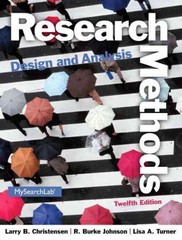Question
People unfamiliar with Islamic culture and history often assume that all Muslims are fundamentalists who reject reason and science as a way of understanding the
People unfamiliar with Islamic culture and history often assume that all Muslims are fundamentalists who reject reason and science as a way of understanding the natural and human world. In this reading, we see Ibn Rushd addressing the relationship between reason and revelation.First, IDENTIFY IBN RUSHD (who was he, when did he live, and where?).
Then answer the following questions:
What does Ibn Rushd say about the relationship between reason and revelation? Why does he think it is necessary to discuss this issue at all? What had happened in the Islamic world to make this a pressing issue for scholars like Ibn Rushd?Does Ibn Rushd privilege one way of viewing the world over the other? Does this reading suggest that Muslims believed it was possible to remain faithful Muslims and still use reason to study the natural and human worlds? In other words, does Ibn Rushd think that reason and revelation, religion and philosophy, are compatible? Why or why not?
It from the book "world together, worlds apart" chapter 8-9
Step by Step Solution
There are 3 Steps involved in it
Step: 1

Get Instant Access to Expert-Tailored Solutions
See step-by-step solutions with expert insights and AI powered tools for academic success
Step: 2

Step: 3

Ace Your Homework with AI
Get the answers you need in no time with our AI-driven, step-by-step assistance
Get Started


